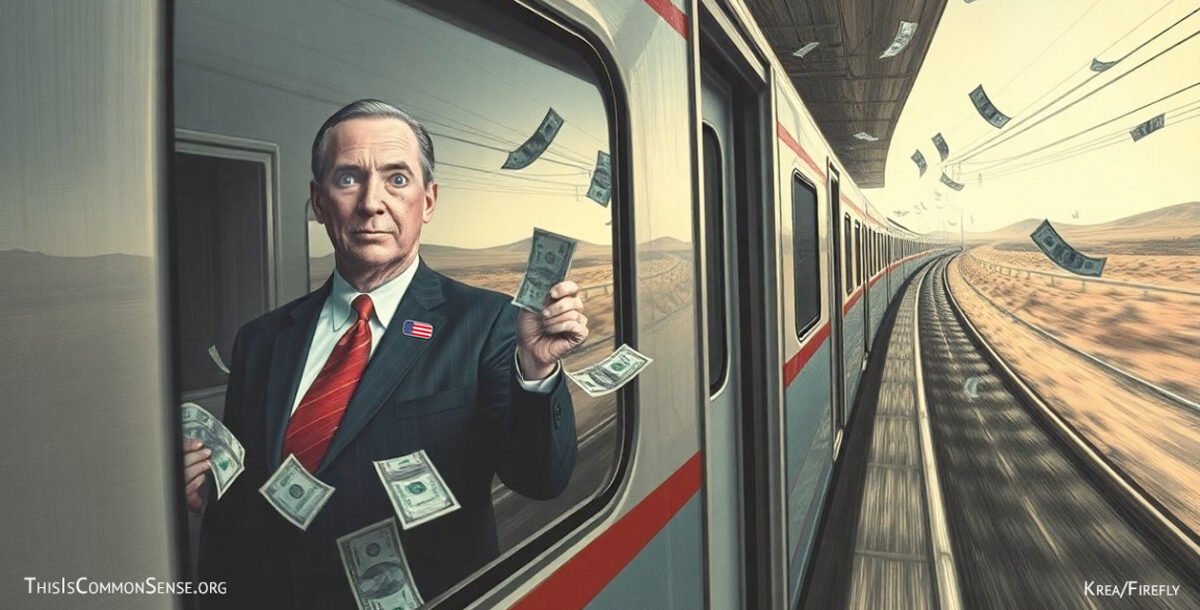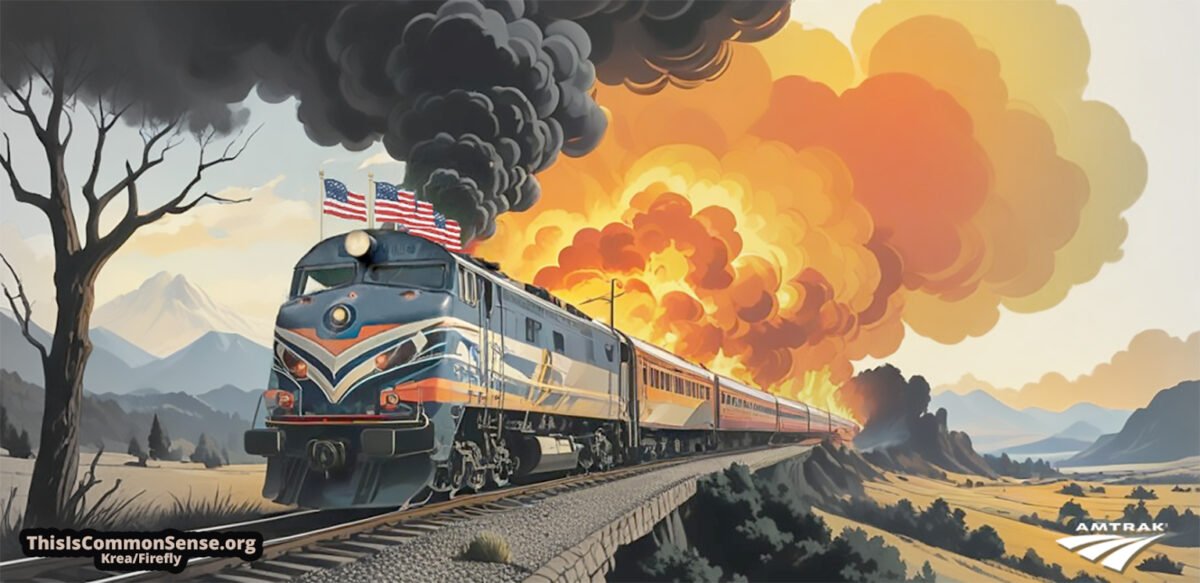The federal government has officially stopped throwing money at California’s long-in-the-non-making “high-speed” railroad. A scheduled-but-unspent $4 billion in federal subsidy has been canceled.
If the nonexistent project continues, money to fund non-laying down of non-tracks must come from other sources.
Non-tracks? Yes. As Victoria Taft notes, “Not one foot of track” of the not-in-progress “high-speed” railroad of the future has been glued into place.
We were just getting to track-laying phase, California Governor Newsom protests.
The going rate for snail-pace non-completion of nonexistent, not-in-progress railroads is $15 billion (says the Department of Transportation): the estimated amount of federal funding for California’s non-project to date.
The total graft bin may have been even larger than that; who knows how many nickels for the non-project have been collected from widows and orphans? But something like $15 billion is how much the federal government doled out over 16 years to ensure the railroad’s non-construction. Projected total cost of California’s infinite-prep-phase railroad: $135 billion.
Why has it taken so long — six-ish whole months — for the second Trump administration to get around to stoppering this particular gusher of monstrous waste of taxpayer dollars?
Perhaps proceeding as fast as they can, the cost-cutters and fraud-flayers take their mission one thing at a time. In Trump’s place, you might be tempted to chuck the whole five-mile-thick list of federal expenditures, throw it into the pyre and defund everything, re-starting from scratch with the courts and military. But not all temptations play out in Washington.
This is Common Sense. I’m Paul Jacob.
Illustration created with Krea and Firefly
See all recent commentary
(simplified and organized)
See recent popular posts


